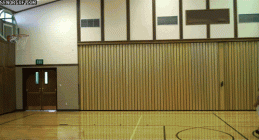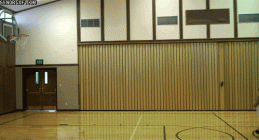Is PRS "practical"? I don't think so, but it doesn't need to be. PRS is a shooting sport that requires specific skills, discipline, and practice. It doesn't need to be "practical" for anything else. The guys that do well in PRS work their butts off, just like those that do well in any shooting discipline.
While there is skill transfer in any shooting discipline, each has its own unique requirements. if you want to be a sniper you need to join the military and get specific training. If you want to be a better long range hunter, there is specific training for that as well.
For LRBR, you have to have a good rifle that tracks well, good rests, consistent gun handling, reasonable wind reading skills, and the big one--you have to know how to tune a load like nobody else. Tuning is what separates the men from the boys in LRBR.
Sure, you can put a rookie behind a well tuned LRBR rifle, show them the basics, and they can shoot decent groups in good conditions. However, that doesn't make them a LRBR shooter, as you have done the hardest part for them.
To really evaluate the difficulty of LRBR, you would give them the rifle and equipment, and then give them various bullets, brass, primers, and powder and tell them to find their own tune, load up their own ammo, and then shoot.
It is hard for people to get into LRBR and do well. There isn't an inexpensive way to start, and you don't get good until you pay your dues and learn how to tune. While we all hear a lot of how "BR is easy", we don't seem to get a lot of shooters from other disciplines to come shoot with us and stick with it.
I think the best attitude is to respect all shooting disciplines, pick which one you like best, work hard, and have fun.
While there is skill transfer in any shooting discipline, each has its own unique requirements. if you want to be a sniper you need to join the military and get specific training. If you want to be a better long range hunter, there is specific training for that as well.
For LRBR, you have to have a good rifle that tracks well, good rests, consistent gun handling, reasonable wind reading skills, and the big one--you have to know how to tune a load like nobody else. Tuning is what separates the men from the boys in LRBR.
Sure, you can put a rookie behind a well tuned LRBR rifle, show them the basics, and they can shoot decent groups in good conditions. However, that doesn't make them a LRBR shooter, as you have done the hardest part for them.
To really evaluate the difficulty of LRBR, you would give them the rifle and equipment, and then give them various bullets, brass, primers, and powder and tell them to find their own tune, load up their own ammo, and then shoot.
It is hard for people to get into LRBR and do well. There isn't an inexpensive way to start, and you don't get good until you pay your dues and learn how to tune. While we all hear a lot of how "BR is easy", we don't seem to get a lot of shooters from other disciplines to come shoot with us and stick with it.
I think the best attitude is to respect all shooting disciplines, pick which one you like best, work hard, and have fun.












